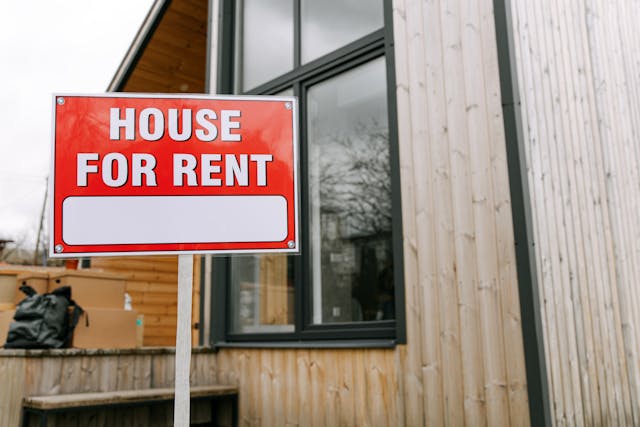How to Convert Your Home Into a Rental Property
Are you considering selling your home to make your move easier? While it might seem like the most straightforward option, a downturn in the market could mean settling for a lower price than you’d hoped.
Instead, why not explore renting out your property? Renting offers a steady income, allows you to retain ownership and watch for market improvements, and could even let you benefit from long-term property appreciation.
At Redsail Property Management, we help homeowners make the most of their properties, whether they’re selling or renting.
Here are some key benefits of renting out your property:
Enjoy Consistent Passive Income
Renting out your home provides consistent monthly income, which can cover your mortgage, and maintenance costs, or fund property improvements.
This passive income also acts as a financial cushion for goals like saving for retirement or making renovations, allowing you to avoid the pressure of selling quickly and potentially losing value.
Benefit from Property Appreciation Over Time
Renting out your property lets you wait for the market to recover while benefiting from potential long-term appreciation.
By holding onto your home, you can sell for a higher price when conditions improve, all while earning rental income in the meantime.
Tax Advantages
Owning a rental property offers tax benefits, such as deductions for maintenance, repairs, mortgage interest, and insurance.
Capital improvements may also allow for property depreciation, reducing your taxable income.
These tax savings, combined with rental income, make renting out your property a smart financial choice.

Avoid Selling at a Loss
Homeowners often rent out their properties to avoid selling at a loss in a down market.
Renting allows you to hold onto the property and earn income, rather than accepting a lower sale price.
How to Successfully Convert Your Home into a Rental Property
If renting out your home sounds like a good strategy, there are a few important steps to take to ensure your property is ready for tenants.
Here’s how to get started:
Assess Your Readiness as a Landlord
Being a landlord involves tasks like marketing, screening tenants, collecting rent, and managing maintenance.
If these responsibilities feel overwhelming, hiring a property management company can help.
They’ll handle everything for a fee, freeing up your time while ensuring your property is well-managed.
Determine if You Qualify for Another Mortgage
Before converting your home into a rental, check with your lender to see if you qualify for a new mortgage while keeping your current property.
Some lenders may consider rental income, but it's important to clarify any restrictions or issues to ensure a smooth process.
Get Landlord Insurance
Your homeowner’s insurance policy may not provide adequate coverage once you convert your property into a rental.
As a landlord, you’ll need to purchase landlord insurance, which covers the specific risks associated with rental properties, such as tenant-caused damage, property wear and tear, and liability protection.

Landlord insurance typically covers:
- Property damage: Damage to the structure or interior caused by tenants or accidents.
- Liability protection: Legal fees or damages in the event of a lawsuit, such as if a tenant is injured on the property.
- Loss of rental income: If the property becomes uninhabitable due to damage, insurance can cover the lost income.
- Natural disaster coverage: Protection against damage from natural events like storms, fires, or flooding.
Having the right insurance ensures that your property and investment are adequately protected.
Schedule a Comprehensive Property Inspection
Before renting out your property, it’s crucial to have a professional inspection to identify any potential issues.
A thorough inspection can uncover hidden problems like plumbing leaks, mold, pest infestations, or structural damage that could impact the livability of the home.
By addressing these issues before tenants move in, you’ll reduce the likelihood of tenant complaints and expensive repair bills down the road.
A well-maintained property not only creates a safer and more comfortable living environment but also protects your investment and minimizes potential legal risks.
Prepare the Property for New Tenants
Once the inspection is complete and any necessary repairs are made, it’s time to make your property appealing to potential renters.
Start by enhancing the curb appeal of your home through fresh paint, clean landscaping, and well-maintained exterior features. This can make a big difference in attracting tenants.
If you’re renting out a furnished property, check that all furniture and appliances are in good condition.
Ensure that everything is clean, functional, and safe for tenants to use. Additionally, hiring a professional cleaning service to deep clean the property can make the space feel fresh and inviting.

Set the Right Rent Price
Pricing your rental property appropriately is one of the most important steps in attracting the right tenants.
Research comparable rental properties in your area to gauge the current market rates. Be mindful of the condition and location of your property to ensure the rent is competitive yet fair.
If you’re unsure of how to price your rental, consider working with a property management company or a real estate agent who specializes in rentals.
They can provide a pricing analysis based on current market trends and help you set a rent price that maximizes your income while remaining competitive.
Establish Clear Lease Terms and Rules
A well-drafted lease agreement sets clear expectations for both you and your tenants.
It should outline important details such as rent payment due dates, security deposit requirements, pet policies, and tenant responsibilities.
Additionally, be sure to specify rules regarding property maintenance and any other restrictions, such as noise or subletting.
Having clear and enforceable rules helps prevent misunderstandings and conflicts with tenants and ensures that your property is well-maintained throughout the lease period.
Bottom Line
Converting your home into a rental property can be a smart and financially savvy move, especially in a down market.
Renting not only provides a steady income but also offers the potential for property appreciation and valuable tax benefits.
However, being a landlord comes with responsibilities—managing the property, handling maintenance, and maintaining tenant relations.
If that sounds like a lot to juggle, Redsail Property Management is here to help. With expert support, you can enjoy the benefits of renting without the stress.
Let us handle the details while you focus on the bigger picture—waiting for the market to improve.
Contact Redsail Property Management today to learn how we can make renting out your home a seamless and rewarding experience!